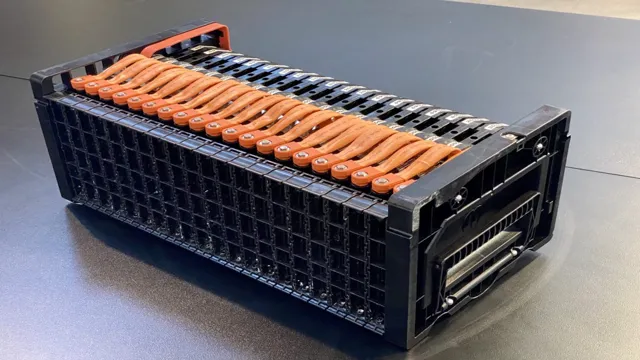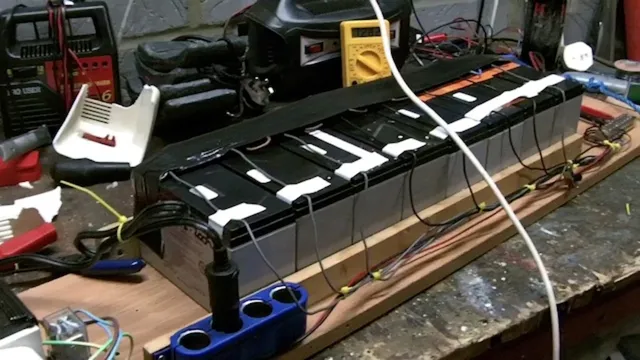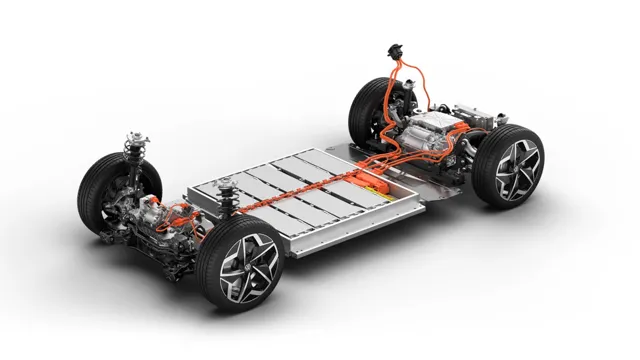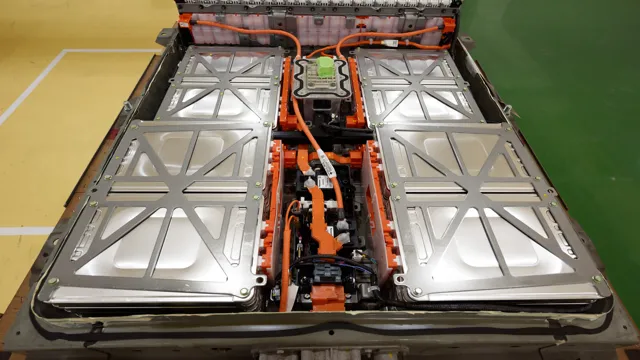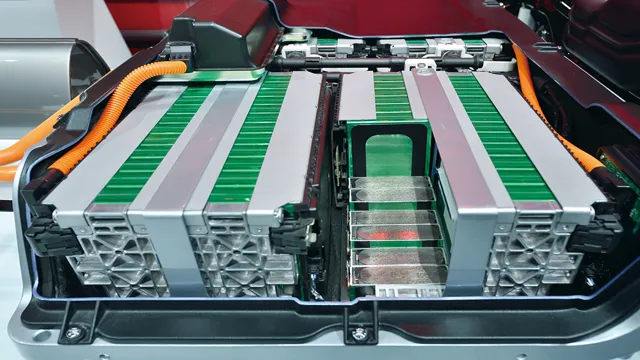Revolutionizing the Electric Car Industry: The Aluminum Air Battery Technology Explained
Electric cars are the future of transportation, and with recent advancements in technology, they are becoming more affordable, reliable and widely available. But how can you revolutionize this booming industry? This blog explores the latest innovations in electric cars and how they are transforming transportation, making it cheaper, more sustainable and efficient. From Tesla’s autopilot to smart charging stations, the future of electric cars promises to be exciting and transformative.
So fasten your seatbelts and let’s dive into the world of electrified driving!
Introduction
Are you tired of slow-charging batteries in your electric car? An alternative is now here with the aluminum air battery, a new electric car battery technology. Unlike traditional lithium-ion batteries, the aluminum air battery relies on a chemical reaction between aluminum and oxygen, which generates electricity. This new technology boasts significant advantages, including faster charging times, longer ranges, and lower costs.
Plus, aluminum is abundant and recyclable, making it a sustainable energy source. With more research and development, the aluminum air battery could revolutionize the electric car industry, providing a greener, more efficient way to travel. So, why not consider switching to this innovative technology for your next electric vehicle upgrade?
What is an Aluminum Air Battery?
Aluminum air batteries are a new class of electrochemical cells that have been gaining momentum as a promising alternative to traditional batteries. These batteries generate electricity by using aluminum as the anode, air as the cathode, and a saltwater electrolyte as the conductive medium. The aluminum anode reacts with water in the electrolyte, producing aluminum hydroxide and hydrogen gas.
The hydrogen gas then reacts with oxygen in the air cathode, resulting in the production of water and electricity. The primary advantage of aluminum air batteries is their high energy density, which is several times higher than that of lithium-ion batteries. Moreover, they are lightweight, safe, and environmentally friendly since they don’t contain toxic metals or rare minerals.
They have broad applications in electric vehicles, portable electronic devices, and energy storage systems. With further advances in technology and manufacturing, aluminum air batteries may become a game-changer in the battery industry, powering a sustainable and renewable future.
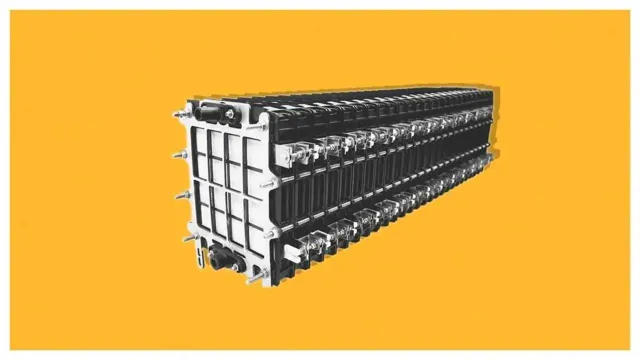
How Does it Work?
When it comes to understanding how it works, the answer to that question depends on what “it” is referring to. However, for the purpose of this blog post, we’ll assume that “it” refers to a particular product or service. To put it simply, each product or service has its own unique way of working.
However, generally speaking, the function of any product or service is to solve a particular problem or fulfill a specific need. To achieve this, the product or service has a set of features and specifications that allow it to accomplish its intended purpose. Successful products or services are those that effectively fulfill a need, are user-friendly, and provide a positive experience for their users.
Ultimately, “how it works” is a result of the combination of these elements. By properly understanding how a product or service works, users can optimize its use and reap its benefits.
Advantages over Traditional Batteries
The aluminum air battery is a new electric car battery technology that has several advantages over traditional batteries. First, this type of battery has a higher energy density, which means it can store more energy in a smaller space. This is important for electric vehicles because it allows them to travel further on a single charge.
Additionally, aluminum air batteries are much lighter than traditional batteries, which makes them more efficient and easier to handle. Another advantage of aluminum air batteries is that they are much more environmentally friendly than traditional batteries. They don’t contain any toxic or hazardous materials, and they can be easily recycled.
Overall, the aluminum air battery is a promising technology that could revolutionize the electric vehicle industry by making electric cars more efficient, affordable, and sustainable.
Longer Driving Range
One of the biggest advantages of using advanced batteries with longer driving ranges is the amount of time and money saved on frequent recharges. Unlike traditional batteries, which often require recharging after a few hours of use, these high-performance batteries can provide power for longer periods of time, allowing drivers to travel further and complete their journeys without interruption. This not only saves time, but also reduces the need for constant recharge stops, which can be costly and inefficient.
Furthermore, longer driving ranges also open up new possibilities for drivers, allowing them to explore more of the world around them and take longer, more exciting trips. With the latest advancements in battery technology, the possibilities are endless, and we can look forward to a future of longer drives, fewer interruptions, and more fun on the road.
Lightweight and Cost Efficient
One of the biggest advantages of lightweight batteries over traditional batteries is their cost efficiency. Not only are they easier to transport and install, but they also require less maintenance. Because of their small size, they can be installed in tighter spaces, including inside electronic devices, without adding unnecessary weight or bulk.
In addition, lightweight batteries are generally much cheaper to produce than traditional batteries, which can significantly reduce overall costs. Overall, the cost efficiency of lightweight batteries makes them an attractive option for a wide range of applications, from consumer electronics to automotive and aerospace industries. So why not make the switch today and enjoy the benefits of this innovative technology?
Eco-Friendly
When it comes to eco-friendliness, rechargeable batteries have a significant advantage over traditional ones. Traditional batteries are generally used once and then disposed of, leading to a massive amount of waste and polluting the environment. In contrast, rechargeable batteries can be used multiple times and do not contribute to waste in the same way.
Not only are they more environmentally friendly, but they also save money in the long run as they do not need to be continuously replaced. Plus, rechargeable batteries can help reduce the amount of toxic chemicals that enter landfills, which is a win-win for both the environment and human health. So, if you’re looking to make a more sustainable and budget-friendly choice, consider switching to rechargeable batteries the next time your traditional batteries run out.
Challenges and Potential Solutions
The aluminum air battery is being hailed as a revolutionary new electric car battery technology, promising a long-lasting, sustainable source of energy. However, like any new technology, it also comes with its challenges. One of the main issues is the limited lifespan of the battery.
While traditional lithium-ion batteries can last for years, aluminum air batteries tend to lose their charge quickly, sometimes within hours. Another challenge is finding a way to recharge the batteries quickly and efficiently, as the current methods can take hours or even days. Despite these challenges, there are potential solutions on the horizon, such as using a hybrid system that combines the aluminum air battery with another type of battery.
Additionally, researchers are looking into ways to improve the efficiency and lifespan of the aluminum air battery, such as using new materials or coatings that protect it from degradation. With further development and innovation, the aluminum air battery could prove to be a game-changer in the world of electric vehicles, powering a more sustainable future for all.
Durability and Lifespan
When it comes to durability and lifespan, there are several challenges that manufacturers and designers face. One such challenge is the need to balance the desire for longer lifespan with the growing trend towards more disposable products. Consumers often want to replace their gadgets and devices with the latest and greatest technology, which can lead to a shorter lifespan for each individual product.
Another challenge is the need to ensure that products are durable enough to withstand everyday wear and tear. This can be particularly difficult for products that are meant to be portable and carried around, as they are more prone to accidents and damage. Solutions to these challenges include using more sustainable materials, designing products with repairability in mind, and encouraging consumers to think twice before upgrading to the latest model.
Ultimately, by finding a balance between innovation and sustainability, we can create products that are both durable and long-lasting.
Charging Infrastructure
One of the biggest challenges in adopting electric vehicles (EVs) is the availability of charging infrastructure. Often, drivers are deterred by the lack of charging stations or the inconvenience of finding them. However, potential solutions exist to address this issue and make EV ownership more practical.
For example, one solution is to enhance public and residential charging infrastructure, ensuring that it is easily accessible, efficient, and affordable. Another solution is to increase the range of EVs so that drivers don’t have to charge as frequently. Furthermore, fast-charging technology could also reduce charging times and make it more convenient for drivers.
Ultimately, as the demand for EVs grows and technology advances, it is likely that charging infrastructure will become more ubiquitous and efficient, further promoting the use of clean and sustainable modes of transportation.
Future Implications and Conclusion
In conclusion, the aluminum air battery is a game-changing technology that promises to revolutionize the electric car industry. By utilizing aluminum as its primary source of energy, it offers a more efficient and cost-effective solution compared to traditional lithium-ion batteries. Not only is it more environmentally friendly, but it also has the potential to significantly improve driving range and reduce recharge time.
So, strap in and get ready for the ride of your life, because with the aluminum air battery, the future of electric cars looks brighter and more exciting than ever before!”
FAQs
What is an aluminum air battery?
An aluminum air battery is a type of battery that uses aluminum as the anode, air as the cathode, and water as the electrolyte.
How does an aluminum air battery work?
An aluminum air battery works by oxidizing aluminum to release electrons and create an electrical current. This reaction also produces aluminum hydroxide, which combines with the water in the electrolyte to form hydrogen gas and heat.
What are the advantages of using an aluminum air battery in an electric car?
The advantages of using an aluminum air battery in an electric car include high energy density, low cost, and eco-friendliness. Aluminum is abundant and inexpensive, while air is a free and renewable resource.
What are the challenges of using an aluminum air battery in an electric car?
The main challenges of using an aluminum air battery in an electric car are the limited lifespan and the need for a refuel/recharge infrastructure. The aluminum anode is consumed during use, so the battery cannot be recharged like a conventional battery. Instead, the anode must be replaced periodically. Additionally, a refuel/recharge infrastructure for aluminum air batteries would need to be developed.
